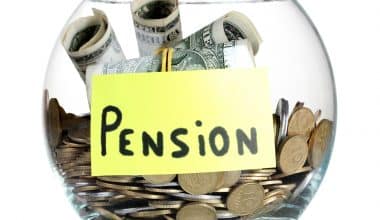Generally speaking, the mortgage rate increases and the borrowing criteria tighten up when the lender is exposed to greater risk. The mortgage on investment property rate is typically higher than those for mortgages on primary residences because lenders are at a higher risk. Contrary to purchasing a primary residence, investing in real estate aims to generate rental income. Read on to find out more about investment property mortgages.
Mortgage for Investment Property
Any mortgage used to buy a property that is being bought as an investment and not for personal use is considered to be an investment property. Not all lenders offer Investment mortgages, and of those that do, only offer a single or a couple of the products under that category.
You require a mortgage for investment property when you purchase one. The minimum down payment for a loan for investment property is 20 percent, but you won’t get the best rates until you raise it to 30 percent or more.
When you’ve decided which type of investment property loan is best for you, then you are ready to apply. A mortgage broker, once more, can be a very useful tool at this point in the game because they can guide you through each step of the application process and provide expert advice at every turn. Assisting you in compiling the required application materials is one of the main ways a mortgage broker can be of service.
You must get an underwriter’s approval before you can move forward with closing on any loan application, whether it’s a mortgage for a residential or rental property. The underwriter’s responsibility includes evaluating your creditworthiness, or whether you have a good chance of repaying your debt, as well as determining the sale price of the property. This reflects its appraised value.
An underwriter will examine your assets, employment history, income stability, debt-to-income ratio, credit score, and credit history to assess your creditworthiness.
Pros of Investment Properties
#1. Security and Stability
Everybody needs a place to live, so properties are almost always in demand. Despite its volatility, the changes in the economy have less impact on the housing market and are more likely to offer fixed returns. Real estate is thus generally safer and more stable than other kinds of investments.
#2. Cash Flow
Because there is such a high demand for housing, buying an investment property is likely to give you a consistent flow of passive income. This is particularly valid if your rental income exceeds your monthly loan payments and maintenance expenses. You could even pay off the mortgage and any additional expenses with the money you earn from renting out your property.
#3. Tax Benefits
Additionally, you may benefit from tax breaks that increase the amount of your investment’s tax return. For instance, you should deduct from your income any costs associated with running your rental property daily to lower your tax.
#4. Long-term Investment
If your property is located in a high-yield area, both the value of your real estate investment and your rental income should rise over time. Additionally, you should experience an increase in cash flow, which you can use to grow your portfolio of investments.
Cons of Investment Properties
#1. Liquidity Problem
If you invest in real estate, as opposed to stocks, you’ll probably find it challenging to get cash. After all, selling a house takes longer. It will be more difficult for you to get your money back if you have an urgent need for money, such as an emergency.
#2. Entry Costs
One of the biggest obstacles for anyone looking to enter the investment property market is the significant financing needed. The cost of the deposit alone may be in the tens of thousands of dollars or higher.
#3. Ongoing Costs
Investment properties necessitate extensive planning due to the high costs involved. Mortgage payments, council fees, upkeep and renovation expenses, and private mortgage insurance are all ongoing, long-term costs associated with owning a home.
#4. Difficult tenants
It can be a nightmare if your tenants are problematic. They can lead to psychological distress, and their actions might even result in financial losses. This is especially true if your tenant is late on rent or damages the property.
How to Obtain a Loan for Investment Purposes
#1. Making Certain You Can Afford It
In addition to any current mortgage payments you might be making, you would also need money for a deposit, any associated fees, and your monthly repayments.
#2. Choosing a Mortgage Type for Investments
You might only be qualified for one type of mortgage for an investment property, which would make your choice simple. However, if you might be able to apply for a few different types, do your research and consider your preferences.
#3. Create and Apply
When looking for a specific type of mortgage, ask your mortgage broker who they would suggest as a lender. They frequently have connections to lenders that an individual would not, and they can use these connections to find you a good deal while making sure you satisfy the lender’s particular requirements. Then, you can cooperate to gather the required documentation so you can confidently submit and apply for the mortgage.
Mortgage for Investment Property Rates
Mortgage rates for investment properties are usually higher than those for residential mortgages. This is because lenders perceive these loans as carrying a marginally higher risk. Each lender will have a specific set of requirements they’ll want you to meet, just like with any other type of mortgage. Those requirements can change based on the lender and the type of investment mortgage you’re applying for. However, generally speaking, they will all be seeking confirmation that you will be able to make the repayments.
Lenders charge higher interest rates for investment properties. This is because lenders view them as higher-risk investments. As a result, the requirements for obtaining a mortgage for an investment property are more stringent.
Mortgage for Investment Property Requirements
When applying for a second mortgage for an investment property, some lenders who specialize in investment mortgages even require that the applicant first have a residential mortgage for a certain period.
An investment property typically requires a 20% to 25% down payment. Lenders may, however, also frequently demand a 30% down payment. On the other hand, some loan programs allow buyers to finance investment properties with as little as a 15% down payment.
The typical down payment for an investment property will, of course, vary depending on the lender’s requirements, the borrower’s background, overall risk profile, and credit history. With a smaller down payment and a higher loan-to-value (LTV) ratio, the lender is potentially exposed to greater risk.
Credit history: When applying for a mortgage, having good credit is always preferred, but some lenders do accept applications with poor credit. BTL mortgages and the case-by-case analysis for commercial mortgages provide an additional level of flexibility.
Deposit: For a BTL mortgage, the majority of lenders look for amounts greater than 15%, whereas commercial mortgage lenders may request amounts ranging from 25% to 50%. If making an international purchase, the deposit requirements will then correspond to those of the local lending market.
How to Obtain a Mortgage for Investment Property
You must determine which loan you require after choosing to purchase an investment property, doing your research, and finding the best deal. The following are four options for financing an investment property.
- Conventional bank loans
- Hard money loans
- Private money loans
- Tapping home equity
#1. Conventional Bank Loans
A traditional bank loan is similar to what you would have obtained for your primary residence if you were financing an investment property. Typically, borrowers must pay 20% of the property’s purchase price to qualify for a conventional bank loan. But lenders frequently demand a 30% down payment for an investment property.
Lenders will also need to be aware of your credit history and score in order to determine whether you qualify for a conventional loan and its interest rate. Your resources and earnings will also be looked at. Simply put, you’ll need to demonstrate that you have the financial means to pay both your current mortgage and the loan payments for your investment property.
#2. Private Money Loans
Private money loans are loans made from one person to another, typically between close friends and/or family members. You might profit from participating in regional real estate investment networking events if neither of these is an option for a private money loan. The conditions of private money loans can be very different since they depend on the relationship between the lender and the borrower. Before you sign a contract with someone in your life, it’s crucial to think about your relationship with the lender, especially if you’re new to real estate investing.
#3. Making Use of Home Equity
By using a cash-out refinance, a home equity line of credit (HELOC), or a home equity loan, you can also use your home’s equity to purchase an investment property. Typically, you are permitted to borrow up to 80% of the equity value of your home to assist with the purchase or repair of an investment property. There may be drawbacks to financing your investment property with equity.
#4. A Hard Money Loan
is a short-term loan that works best for flipping investment properties rather than purchasing, holding, renting out, or developing them. It may be simpler to qualify for a hard money loan than a conventional loan, which is a benefit of using it to finance a house flip. Lenders continue to take factors like income and credit into account, but the profitability of the property is where they place their main attention. You can determine if you can repay the loan by looking at the estimated after-repair value (ARV) of the home. As opposed to waiting several weeks or months for a conventional mortgage closing, it is also possible to receive loan funding quickly—often within a few days.
Hard money loans for fix-and-flip projects have a high cost, which is their main disadvantage. Depending on the lender, interest rates for this type of loan can reach 18%, and there may not be much time left for you to repay it.
Are Mortgage Rates Higher for an Investment Property?
For good reason, lenders view rental properties as riskier investments than primary residences: If things go south and a borrower finds themselves unable to make payments, they are more likely to default on a loan for an investment property than on their primary residence. Thus, interest rates on mortgages for investment property are typically higher than those for residential mortgages.
What Is the 1 Rule for an Investment Property?
The 1% rule for investment property states that the amount of monthly rent you receive on a property should be at least 1% of the purchase price. In essence, this means that you must demand a minimum fee of 1% of the purchase price. Additionally, it implies that you ought to aim for a monthly mortgage payment that, ideally, is lower than that 1% figure—certainly not higher.
What Age Is Best to Buy an Investment Property?
Considering that a family’s home is an asset, there is no disadvantage to purchasing one when young. However, if one can put off making a choice and save more money to use as a down payment for the property, the percentage of the loan at a later time can be decreased.
The best age is between 30 and 35 when you have saved up 30 to 40 percent of your home budget and can easily handle the remaining balance.
What Credit Score Is Needed for an Investment Property?
Rental properties require a 620 minimum credit score. Although some mortgage lenders will accept a credit score as low as 600, a 660 is thought to be safe. An ideal credit score is one of 740 or higher with a 20% down payment. For a down payment reduction, a real estate investor would require a score of 760.
Should I Invest in Real Estate When Interest Rates Are High?
Invest If You Can. The cost of borrowing will increase as interest rates rise. Since many consumers will be priced out of the market, there will be less demand, which could lead to lower prices. If you have the money to buy a house when interest rates are high, it might be a wise investment.
Is Rent Included in the Debt to Income?
Your debt-to-income ratio (DTI) evaluates your monthly debt load against your income. It specifically refers to the percentage of your gross monthly income (before taxes) that is used to settle debts such as rent, a mortgage, credit cards, etc. Add up all of your monthly obligations, including rent or mortgage payments, student loan repayments, personal loans, auto loans, credit card bills, child support, alimony, and other obligations, and divide the total by your monthly income to determine your debt-to-income ratio.
How to Buy a Second Home Without Selling the First?
- Get approved for another mortgage
- Take out a bridge loan
- Get a home equity loan
Can I Convert My Second Home Into an Investment Property?
You can change the mortgage on a second home into one for an investment. However, this option might not be available until after a certain amount of time has passed, and if you choose to refinance, you’ll be subject to higher rates and new rules.
Conclusion
Mortgages for investment properties can be a completely different world, so it’s helpful to work with a professional who is knowledgeable about the specifics of each type of investment mortgage and how it might apply to you. Although buying an investment property won’t guarantee you’ll become wealthy, it can be a very wise financial move that will benefit you both now and in the future. Obtaining approval for a mortgage for an investment property may appear to be a difficult task, but if you have the necessary drive and knowledge of the application procedure, you will undoubtedly succeed.
Related Articles
- MORTGAGE RATES FOR INVESTMENT PROPERTY: Current Mortgage Rates for Investment Property
- SECOND MORTGAGE: Definition, Rates and Requirements
- No Down Payment Mortgage: Getting a Mortgage With No Down Payment In 2023
- Secondary Mortgage Market: Step By Step Guide On How It Works






